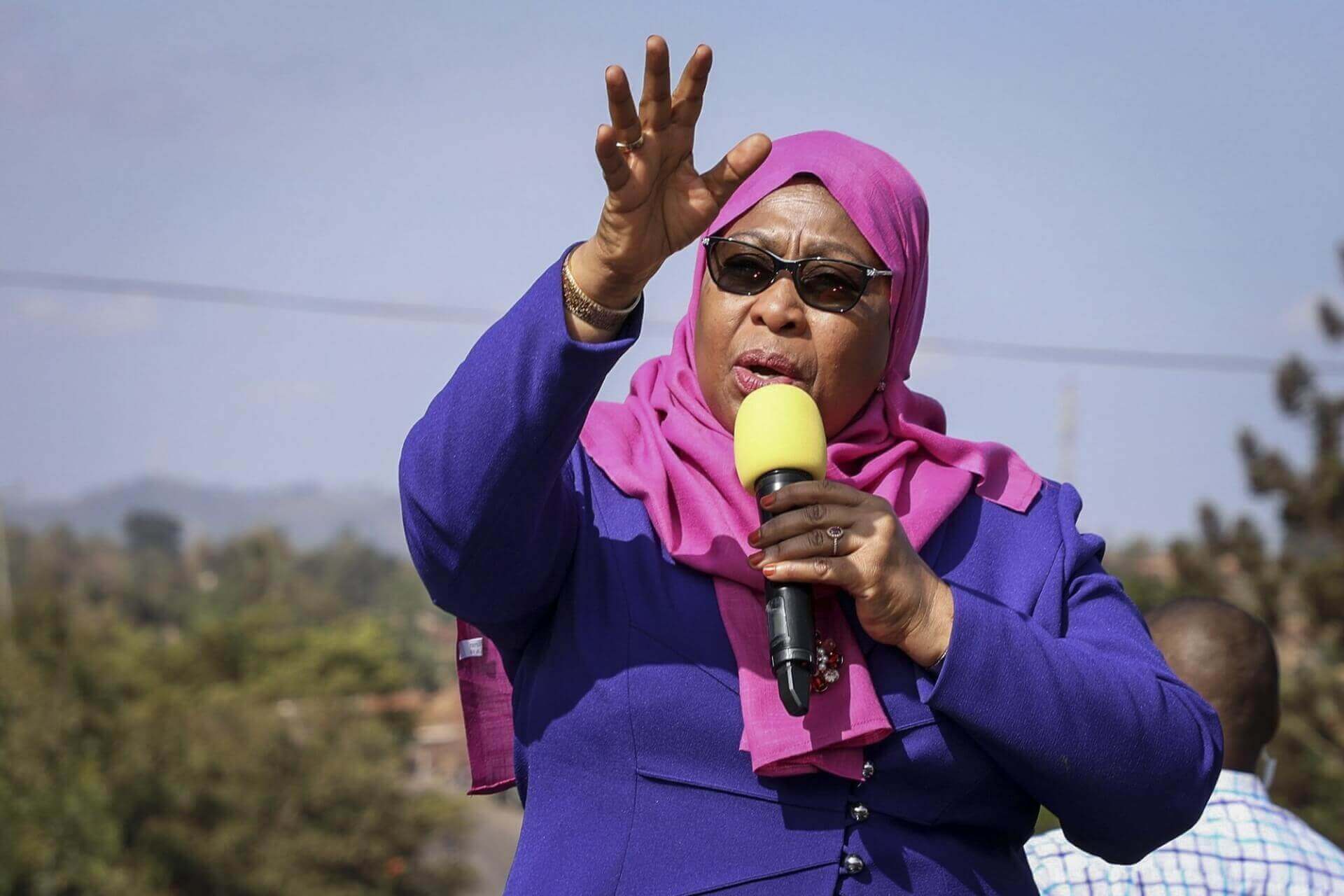Interim Tanzanian President Samia Suluhu Hassan, who was elevated from the post of Vice President following the death of John Magufuli on March 17, has ushered in a wave of changes that aim to transform the country from the Magufuli era.
Following months of COVID-19 denialism under her predecessor, Suluhu has now established a special task force to deal with the pandemic. At a speech delivered at the State House on Tuesday, the new president said, “On the issue of Covid-19, I think I should form a Committee of Experts to look at it professionally and then advise the Government, it should not be silenced or rejected or accepted without professional research.”
She added, “We cannot isolate ourselves as an Island but also we cannot accept everything brought to us, we cannot continue just reading about Covid 19 Worldwide, yet Tanzania is all blank, it is incomprehensible.” Keeping this in mind, she said that her administration would take a “science-based” approach to tackling the pandemic and that the government may even resume publishing data on cases and deaths after it was halted by Magufuli last April.
Last year, Magufuli declared that three days of national prayers had “eliminated” the “devil” of the coronavirus” from the country. He also placed his trust in “local herbs” and claimed that “vaccinations are dangerous”. Furthermore, he refused to place lockdown restrictions on churches or mosques and spoke out against wearing face masks.
It has been reported that Tanzania’s hospitals are still following advice from the Magufuli administration to treat coronavirus patients using steam therapy, even in the face of no known or proven benefits or effect. Therefore, it is hoped that Suluhu’s more ‘science-based’ approach will now lead to the use of WHO-recommended treatments.
Suluhu also called on the Ministry of Information to remove its ban on media outlets whose licenses were revoked under the Magufuli administration in order to allow for press freedom. To this end, she said, “You must not ban just because you have the power to do so…Lift the bans but make sure they follow the government’s regulations and guidelines.”
Under the Magufuli administration, blogs and social media pages had to pay a license fee of $900 to keep their websites up and running, and these licenses could be revoked at the discretion of the government if it considered the page to be threatening public order or national security. Offenders faced a fine of up to $2300 or a prison term of 12 months. Additionally, Magufuli also suspended the licenses of news outlets that were critical of his governance.
Suluhu also instructed regional governments to respect citizens’ freedom of expression without the threat of intimidation and further said, “We will deal accordingly with anyone who prevents the people from expressing their views on challenges they are facing if it comes to my attention that they are prevented from airing them out.”
In 2018, Magufuli banned political opposition from organising demonstrations, and those who defy or criticised this ban have been arrested. For instance, center-right opposition party Chadema’s presidential candidate Tundu Lissu has been arrested multiple times and was shot 16 times in an attack in 2017. Furthermore, in the run-up to the presidential election in November, police fatally shot at least seven citizens in Zanzibar and arrested the region’s presidential candidate, Maalim Seif Sharif Hamad, alongside over 100 civilians.
Magufuli also fast-tracked a legislation that banned all forms of digital protests, whereby organizing, planning, or even supporting any form of demonstration on the internet has now been deemed illegal. His administration also placed a ban on sharing information about any infectious disease outbreaks without government permission. In fact, the ban even extends to private message platforms such as WhatsApp. Simultaneously, restrictions on hate speech on the topics of sexuality and gender were removed as well.
Keeping this in mind, Suluhu’s speech seems to suggest that her administration will guarantee greater political rights for opposition and citizens.
Furthermore, Suluhu also said that she would seek to remove red tape for foreign investment by removing excessively stringent measures for work permit applications and other documentation. She remarked, “The people who deal with the issuance of these permits have become like demi-gods... applicants are given an unnecessary run-around. This must stop... we want our investors to enjoy Tanzania.”
Along the same lines, she also urged Minister for Foreign Affairs and East African Cooperation Liberata Mulamula to “establish good relations with foreign countries”.
On the topic of the economy, she also pushed the Ministry of Energy to expedite its liquefied natural gas (LNG) project.
Next, she said that 6,000 teachers would be hired and 26 girls’ schools would be constructed by 2025 in order to increase literacy and education levels as well as provide a pathway to achieving gender parity.
President Suluhu’s speech drew widespread praise, even from opposition politicians, for its visionary approach which seeks to usher in a new era after what many saw as a period of stagnation or even regression under Magufuli. It now remains to be seen whether she will make true on these promises.
New Tanzanian President Suluhu Ushers in Radical Changes From Magufuli Era
Most significantly, following months of COVID-19 denialism under her predecessor, Suluhu has now established a special task force to deal with the pandemic and vowed to take a science-based approach.
April 7, 2021

Tanzanian President Samia Suluhu Hassan SOURCE: AP PHOTO
